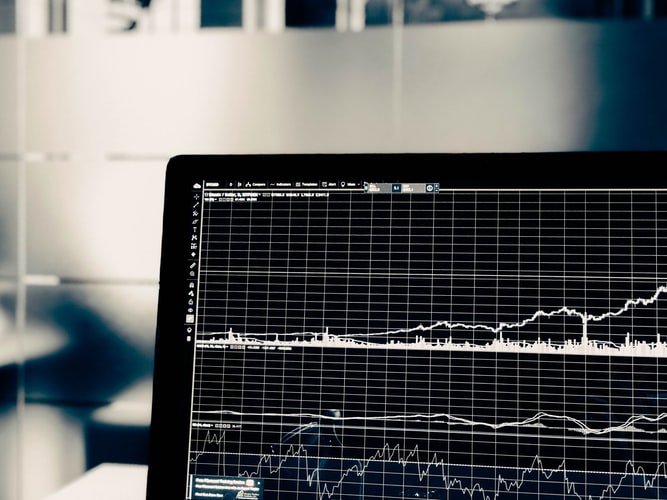Forex trading for beginners can be very difficult and intimidating. This is typically due to unrealistic but very common expectations among new traders that step into this world. The first thing that most newbies do is try to learn Forex from scratch. This article will help new traders and will work as a mini-guide or manual for beginners.
What is Forex?
Forex or FX or the Foreign Exchange market is a global marketplace for exchanging national currencies against one another.
Why Can We Trade Currencies?
Currency trading was very difficult for individual investors before the time of the internet. Most currency traders were large multinational corporations, with hedge funds for high-net-worth individuals because they require large amounts of capital. With the invention of the internet, retail markets directed at individual traders emerged that provided easy access to the foreign exchange market, either through the banks themselves or brokers making a secondary market. Today, most online brokers, dealers and funded forex trading accounts will offer high leverage to individual traders who can control a big trade with a small account balance.
Forex Terminologies And Concepts For Beginners:
- Pip
Pip is nothing but the base unit in the price of the currency pair or 0.0001 of the quoted price in non-JPY currency pairs. Therefore, when the bid price for the EUR/ USD pair goes from 1.16667 to 1.16677, it represents a difference of 1 pip.
- Margin
Margin is the money that is reserved in the trading account when opening a trade. But because the average “Retail Forex Trader” lacks the necessary margin to trade at a high volume, enough to make a good profit, several Forex brokers offer clients access to leverage.
- CFDs
The term CFD stands for Contract for Difference and is used to represent the movement in the prices of financial instruments. In Forex terminology this means that instead of buying and selling large amounts of currency you can exploit the price movements without having to own the asset itself. Along with Forex, CFDs are also available in stocks, bonds, commodities, indices, and cryptocurrencies.
- Leverage
The concept of leverage is important for beginners to understand. The Leverage is the capital provided by a Forex broker to increase the volume of trade its clients can make. Leverage should always be used with caution.
- Spread
The spread is the difference between the buying price and selling price of a currency pair. For the most popular currency pairs, the spread is typically low and sometimes even less than a pip. On the other hand, for currency pairs that does not trade as often, the spread tends to be higher. Prior to a Forex trade becoming profitable the value of the currency pair must exceed the spread.
Pros Of Trading Forex:
- The Forex market is traded 24 hours a day five days a week. It starts each day in Australia and ends in New York. The major centres are Singapore, Hong Kong, Sydney, Tokyo, London, Paris, and New York.
- The Forex market offers the most liquidity because these markets are the largest in terms of daily trading volume in the world. This enables entering and exiting a position in any of the major currencies within a fraction of a second for a small spread, in most market conditions.
Forex Trading Risks Every Beginner Should Know:
- Interest Rate Risk
The moment a country’s interest rate rises, the currency could strengthen and this boost in strength can be attributed to an influx of investments in that country’s money markets since with a stronger currency higher return could be expected. But if the interest rate falls the currency can weaken and may result in more investors withdrawing their investments. Use accurate forex signals which will help you predict the early stages of interest rates.
- Transaction Risk
This is an exchange rate risk that can relate to the time differences between the different countries. This can occur sometime between the beginning and the end of a contract. There is a possibility that during the 24 hours exchange rates will alter even before settling a trade. The greater the time difference is between entering and settling a contract, higher is the transaction risk.
- Leverage Risk
Brokers, dealers, and banks in the Forex market have a high amount of leverage. This means that traders can control large positions with relatively little money of their own. A trader must properly understand the use of leverage and the risk that leverage introduces in an account. Massive amounts of leverage have led to many dealers becoming bankrupt unexpectedly. Leverage can affect your trading in a positive or a negative way. So, the higher your leverage is, the larger your benefit or losses will be.
If you are planning on trading in the Forex market you must find a good broker. IQ Option is a great broker for beginner Forex traders since the minimum trade requirement is $1. The minimum investment is $10 and most importantly you can opt for a test run using their unlimited demo accounts. For further information and tips on IQ Option, please visit www.iqoptionmag.com/
The bottom line is, for traders with limited funds it is possible and easier to make trades in the Forex market than other markets. Similarly, for those with a long-term horizon and larger funds can carry out trades to make massive profits.
